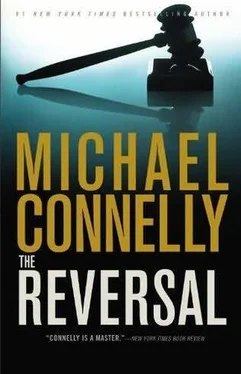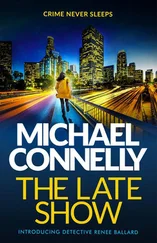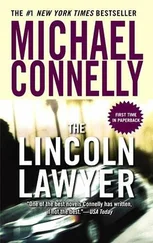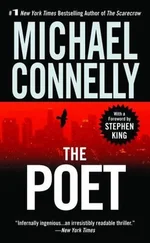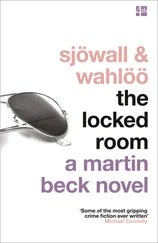Jury selection had gone as scheduled. We went through the first panel of ninety prospective jurors in a day but had sat only eleven after most were eliminated because of their media knowledge of the case. The second panel was just as difficult to choose from and it wasn’t until Friday evening at five-forty that we had our final eighteen.
I had my jury chart in front of me, and my eyes were jumping between the faces in the box and the names on my Post-its, trying to memorize who was who. I already had a good handle on most of them but I wanted the names to become second nature to me. I wanted to be able to look at them and address them as if they were friends and neighbors.
The judge was on the bench and ready to go at nine sharp. She first asked the attorneys if there was any new or unfinished business to address. Upon learning there was not, she called in the jurors.
“Okay, we are all here,” she said. “I want to thank all of the jurors and other parties for being on time. We begin the trial with opening statements from the attorneys. These are not to be construed as evidence but merely-”
The judge stopped, her eyes fixed on the back row of the jury box. A woman had timidly raised her hand. The judge stared for a long moment and then checked her own seating chart before responding.
“Ms. Tucci? Do you have a question?”
I checked my chart. Number ten, Carla Tucci. She was one of the jurors I had not yet committed to memory. A mousy brunette from East Hollywood. She was thirty-two years old, unmarried and she worked as a receptionist at a medical clinic. According to my color-coded chart, I had her down as a juror who could be swayed by stronger personalities on the panel. This was not a bad thing. It just depended on whether those personalities were for a guilty verdict or not.
“I think I saw something I wasn’t supposed to see,” she said in a frightened voice.
Judge Breitman hung her head for a moment and I knew why. She couldn’t get the wheels out of the mud. We were ready to go and now the trial would be delayed before opening statements were even in the record.
“Okay, let’s try to take care of this quickly. I want the jury to stay in place. Everyone else stay in place and Ms. Tucci and the attorneys and I will go quickly back to chambers to find out what this is about.”
As we got up I checked my jury chart. There were six alternates. I had three of them pegged as pro-prosecution, two in the middle and one siding with the defense. If Tucci was ejected for whatever misconduct she was about to reveal, her replacement would be chosen randomly from the alternates. This meant that I had a better-than-even chance of seeing her replaced with a juror who was partial to the prosecution and only a one in six chance of getting a juror who was pro-defense. As I followed the entourage into chambers I decided that I liked my chances and I would do what I could to have Tucci ejected from the panel.
In chambers, the judge didn’t even go behind her desk, perhaps hoping this was only going to be a minor question and delay. We stood in a group in the middle of her office. All except the court reporter, who sat on the edge of a side chair so she could type.
“Okay, on the record,” the judge said. “Ms. Tucci, please tell us what you saw and what is bothering you.”
The juror looked down at the ground and held her hands in front of her.
“I was riding on the Metro this morning and the man sitting across from me was reading the newspaper. He was holding it up and I saw the front page. I didn’t mean to look but I saw a photo of the man on trial and I saw the headline.”
The judge nodded.
“You are talking about Jason Jessup, correct?”
“Yes.”
“What newspaper?”
“I think it was the Times .”
“What did the headline say, Ms. Tucci?”
“New trial, old evidence for Jessup.”
I hadn’t seen the actual L.A. Times that morning but had read the story online. Citing an unnamed source close to the prosecution, the story said the case against Jason Jessup was expected to be comprised entirely of evidence from the first trial and leaning heavily on the identification provided by the victim’s sister. Kate Salters had the byline on it.
“Did you read the story, Ms. Tucci?” Breitman asked.
“No, Judge, I just saw it for a second and when I saw his picture I looked away. You told us not to read anything about the case. It just kind of popped up in front of me.”
The judge nodded thoughtfully.
“Okay, Ms. Tucci, can you step back into the hallway for a moment?”
The juror stepped out and the judge closed the door.
“The headline tells the story, doesn’t it?” she said.
She looked at Royce and then me, seeing if either of us was going to make a motion or a suggestion. Royce said nothing. My guess was that he had juror number ten pegged the same way that I did. But he might not have considered the leanings of the six alternates.
“I think the damage is done here, Judge,” I said. “She knows there was a previous trial. Anybody with any basic knowledge of the court system knows they don’t retry you if you get a not-guilty. So she’ll know Jessup went down on a guilty before. As much as that prejudices things in the prosecution’s favor, I think to be fair she has to go.”
Breitman nodded.
“Mr. Royce?”
“I would agree with Mr. Haller’s assessment of the prejudice, not his so-called desire to be fair. He simply wants her off the jury and one of those churchgoing alternates on it.”
I smiled and shook my head.
“I won’t dignify that with a response. You don’t want to kick her off, that’s fine with me.”
“But it’s not counsel’s choice,” the judge said.
She opened the door and invited the juror back in.
“Ms. Tucci, thank you for your honesty. You can go back to the jury room and gather your things. You are dismissed and can report back to the juror assembly room to check with them.”
Tucci hesitated.
“Does that mean-?”
“Yes, unfortunately, you are dismissed. That headline gives you knowledge of the case you should not have. For you to know that Mr. Jessup was previously tried for these crimes is prejudicial. Therefore, I cannot keep you on the jury. You may go now.”
“I’m sorry, Judge.”
“Yes, so am I.”
Tucci left the chambers with her shoulders slumped and with the hesitant walk of someone who has been accused of a crime. After the door closed, the judge looked at us.
“If nothing else, this will send the right message to the rest of the jury. We’re now down to five alternates and we haven’t even started. But we now clearly see how the media can impact our trial. I have not read this story but I will. And if I see anyone in this room quoted in it I am going to be very disappointed. There are usually consequences for those who disappoint me.”
“Judge,” Royce said. “I read the story this morning and no one here is quoted by name but it does attribute information to a source close to the prosecution. I was planning to bring this to your attention.”
I shook my head.
“And that’s the oldest defense trick in the book. Cut a deal with a reporter to hide behind the story. A source close to the prosecution? He’s sitting four feet across the aisle from me. That was probably close enough for the reporter.”
“Your Honor!” Royce blurted. “I had nothing to-”
“We’re holding up the trial,” Breitman said, cutting him off. “Let’s get back to court.”
We trudged back. As we went back into the courtroom I scanned the gallery and saw Salters, the reporter, in the second row. I quickly looked away, hoping my brief eye contact had not revealed anything. I had been her source. My goal was to manipulate the story-the scene setter, as the reporter had called it-into being something that gave the defense false confidence. I hadn’t intended it as a means of changing the makeup of the jury.
Читать дальше
